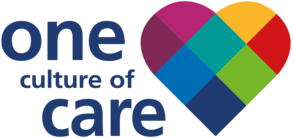Here is a brief description of recent changes to Medicine Codes. Please make yourself aware of the changes, as they may also impact training requirements.
Policies or guidelines that have been added, updated or renewed within the last 30 days are all stored on the Recent Updates page of the Policies and Documents library, so you can find these documents there or search from the homepage.
|
POLICY
|
SUMMARY OF AMENDMENTS
|
NEXT REVIEW DATE
|
|
C-24-2010 The Medicine Code Introduction (including Equality Impact Assessment for the Medicine Code as a whole)
|
- Administration of subcutaneous injections added to the list of routes Medicines Administration Pharmacy Technicians can administer;
- Students/Trainees are able to participate in all aspects of CD management under direct and supervision of (in the main) two Registered Practitioners. Medicine Code sections 12 and 13a have been updated to reflect this;
- Medicines Management e-learning for Registered Nurses/Midwives/ Nursing Associates/Pharmacy staff is an interactive, bespoke, five module learning package. It must be completed once every three years. More bespoke training can be developed as required by the Medication Safety Team – added;
- Training Needs Analysis for medicines management – updated to reflect medicines management eLearning modules;
- References to ICBs – added;
- In Community, after competence is achieved, NAs may administer patches or oral medication containing Controlled Drugs as a lone worker – added;
- Ward/Departments are encouraged to have Medicines Management Champions - added
|
May 2028
|
|
C-24-2006 The Medicine Code – Procurement of Medicines
|
- Administration of subcutaneous injections added to the list of routes Medicines Administration Pharmacy Technicians can administer;
- Students/Trainees are able to participate in all aspects of CD management under direct and supervision of (in the main) two Registered Practitioners. Medicine Code sections 12 and 13a have been updated to reflect this;
- Medicines Management e-learning for Registered Nurses/Midwives/ Nursing Associates/Pharmacy staff is an interactive, bespoke, five module learning package. It must be completed once every three years. More bespoke training can be developed as required by the Medication Safety Team – added;
- Training Needs Analysis for medicines management – updated to reflect medicines management eLearning modules;
- References to ICBs – added;
- In Community, after competence is achieved, NAs may administer patches or oral medication containing Controlled Drugs as a lone worker – added;
- Ward/Departments are encouraged to have Medicines Management Champions – added
|
May 2028
|
|
C-24-2008 The Medicine Code – Section 14 Discharge Medicines, Leave or on Transfer of Patient
|
- References to Stores changed to Materials Management;
- Sterile water for flushing feeding tubes will only be supplied to patients under 1 year old, immunocompromised patients or anyone who is Jejunal feeding. All other patients can use freshly drawn up tap water is used to flush feeding tubes – updated;
- Checking codeine and dihydrocodeine TTO packs on discharge, the requirement for independent second check – added.
|
May 2028
|
|
C-24-2006 The Medicine Code – Section 28 Medical Gases
|
- Updated links;
- Clarification of who to contact regarding security issues;
- Updated Medical Director information as clinical lead;
- Update on Medical Gas and NIV Group structure and role;
- Equans not Engie staff at CRH;
- Removal of hoses from Entonox wall outlets when not in use;
- Reference to review of nitrous oxide and work to reduce greenhouse gases in 2024/25;
- Update on audit of practice as not specific pharmacy audits thus removed;
- Reference to Bradford Contract for QC Gas testing not HPS service;
- Clinical Engineering not Medical Engineering;
- Reference to satellite sites having medical gas cylinders e.g Broad Street;
- Update to Manifold locations following decommissioning of nitrous oxide at HRI;
- Milk rounds to collect cylinders are at least 3 times a week not daily;
- Reporting structure and frequency of meetings;
- Administration without a prescription – e.g. ongoing resuscitation during a cardiac arrest call’.
|
May 2028
|

